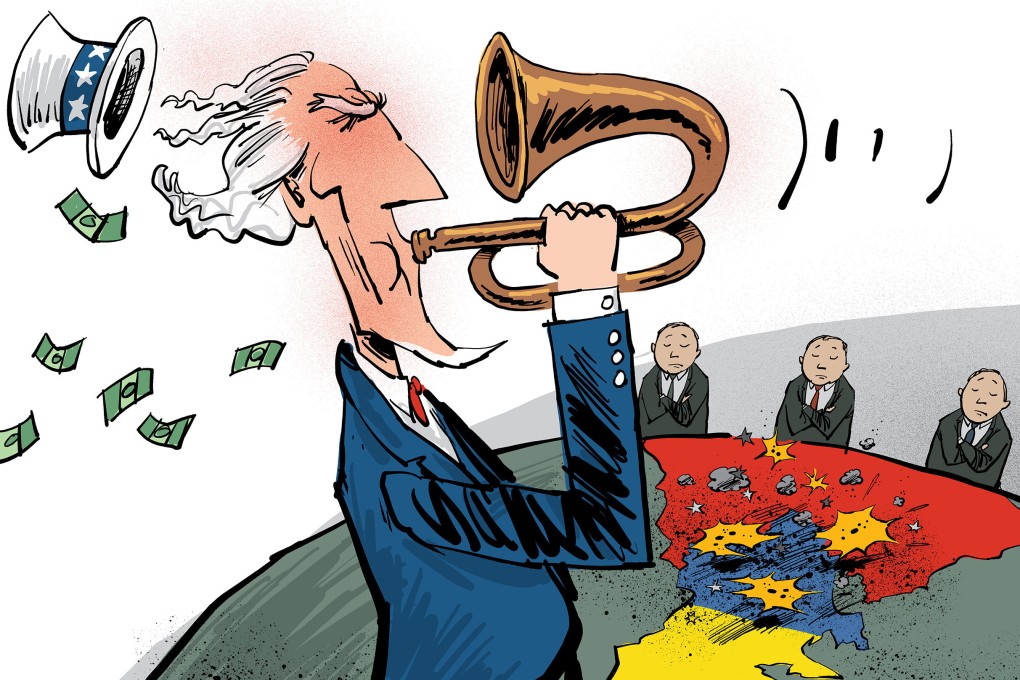Opinion | Why US won’t convince others to forgo economic interests to support its power struggle with Russia
- The reluctance of many countries, including heavyweights like India, to support US sanctions on Russia points to a new, more fragmented world order in which states eschew the geopolitical aims of major global powers to pursue their own economic needs

Since Russia launched its “military operation” against Ukraine, it has faced several rounds of economic sanctions from the West. Chinese state tabloid Global Times has stressed that 140 of the 190 UN member states have shunned the anti-Russia sanctions, adding that the reverberations of the Ukraine crisis will backfire on the US.
Nevertheless, the tabloid’s narrative speaks to the ongoing diplomatic rift between US-led alliances and other states gravitating to neutrality in pursuit of their own economic or political interests. Popular media headlines today go something like: Russia and the West battle to woo China and India over Ukraine.
Against this backdrop, Russian Foreign Minister Sergey Lavrov hosted BRICS ambassadors at a working breakfast on March 22 to discuss the Ukraine issue. Such coherence in diplomatic manoeuvring may come as a surprise to those who had already certified the death of the grouping, comprising Brazil, Russia, India, China and South Africa, in 2016.
